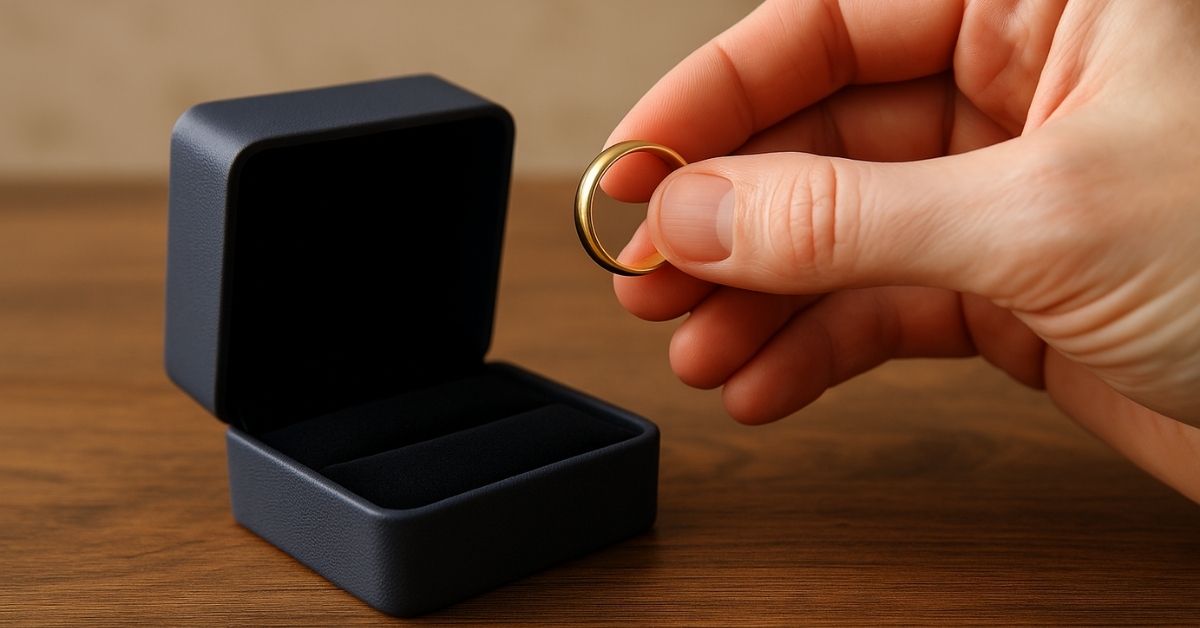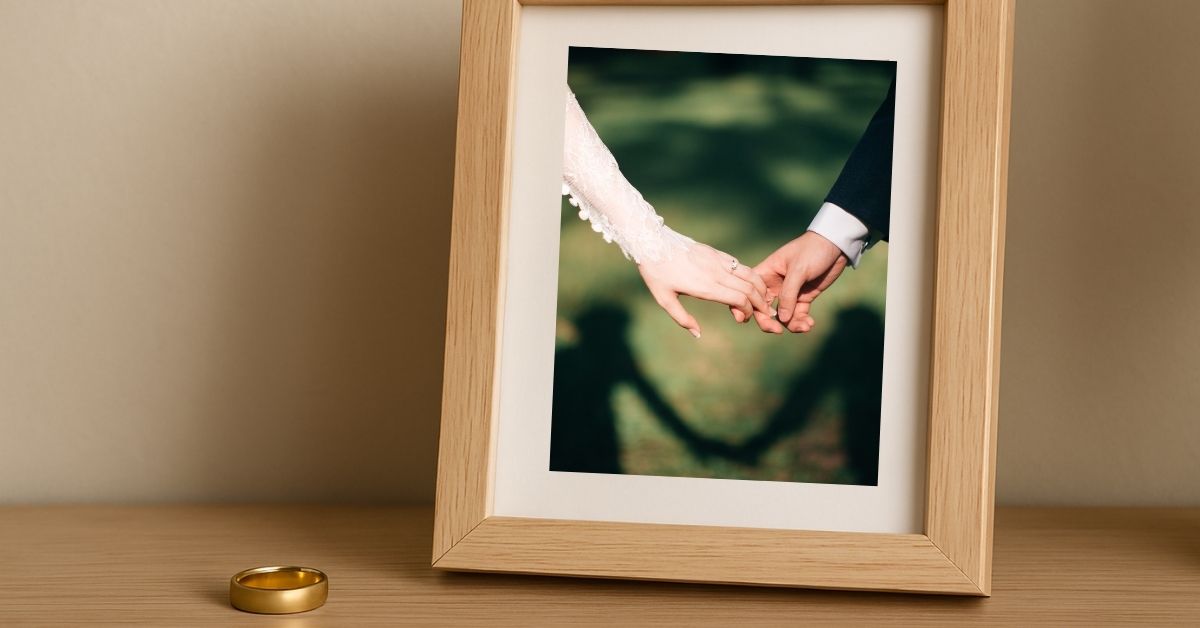
What To Do With Your Wedding Ring After Divorce
For many, a wedding ring is more than jewelry; it is a symbol of love, commitment, and shared history. After a divorce, however, this once-cherished item can become a complicated emotional and practical dilemma. Deciding what to do with your wedding ring is a deeply personal choice influenced by your feelings, financial circumstances, and your readiness to move forward. If you’re navigating this decision in your 50s or beyond, here are some thoughtful options and tips to help you chart a path toward healing and renewal.
Exploring Wedding Ring Options After Divorce
Your wedding ring doesn’t have to sit in a drawer forever. Here are some practical ideas to consider for repurposing, reselling, or honoring its sentimental value in a way that suits your next chapter.
- Sell Your Ring and Put the Money Toward Something Meaningful
Selling your wedding ring can be a powerful act of letting go. Investing the proceeds into something that brings you happiness or represents your future can give this decision a sense of purpose.
- Save for a new goal or dream – Maybe there’s a trip you’ve always wanted to take, a class you’ve been curious about, or a hobby you’d like to pick up. Selling your ring could help you fund these opportunities.
- Pay off debts – If you’re dealing with the financial aftermath of divorce, selling your ring might offer a small but significant chance to ease some stress by paying down debt.
- Donate to charity – For some, donating the money from a ring sale to a cause you care about can feel like turning pain into progress. This is a way to extend good energy out into the world.
If you decide to sell, work with a reputable jeweler or online platform to ensure you get the best possible deal. Ask for appraisals and compare quotes before making a decision.
- Repurpose the Jewelry into Something New
Another option is to transform your wedding ring into something new that still honors a part of your past but feels more aligned with who you are now. This can be a symbolic and creative way to move forward.
- Create a new piece of jewelry – Work with a jeweler to redesign your ring into a necklace, bracelet, or another kind of ring that doesn’t bear the same emotional weight as your wedding band.
- Pass it on to family – If you have children or grandchildren, your ring could become a cherished family heirloom. Passing it on can symbolize the continuation of love, even if it takes a different form.
- Keep It as a Memento
Not everyone feels the need to part with their wedding ring, and that’s okay. For some, holding onto it as a keepsake can be comforting or serve as a reminder of the lessons learned.
- Store it for now – If you’re unsure about what to do, there’s no harm in keeping the ring in a safe place until you feel ready to make a decision.
- Turn it into art – Some people choose to incorporate their ring into a shadow box, memory jar, or other creative project as a nod to their shared history without it being front and center in their lives.
Whatever you choose, make sure your decision feels like it’s coming from a place of clarity and intention, rather than an emotional reaction.

Moving On After Divorce At 50 And Beyond
Divorce at any age can feel overwhelming, but navigating it later in life comes with its own set of emotional and practical challenges. That said, your 50s and beyond can also be a time of tremendous renewal and growth. Here are some useful insights to help you move forward.
Focus on Self-Rediscovery
Divorce can leave you questioning your identity, especially after a long marriage. This is an opportunity to focus on rediscovering yourself and exploring what truly brings you joy.
- Reflect on your personal goals. Do you want to travel, learn a new skill, or volunteer for a cause you care about? Now’s the time to explore.
- Reconnect with hobbies or interests you might have set aside during marriage. Reclaiming these parts of yourself can be immensely healing.
Surround Yourself with Support
Divorce can sometimes be isolating, especially if your social circle was tightly woven with your former spouse’s. Building a strong support system is vital for moving forward.
- Connect with other divorced individuals to share experiences and advice. There are many local and online groups for mature adults coping with divorce.
- Strengthen relationships with friends and family who uplift and encourage you. It’s okay to lean on others during this transition.
Practice Self-Compassion
Healing from divorce isn’t linear, and it’s okay to have good days and bad days. Practicing self-compassion means giving yourself grace throughout the process.
- Acknowledge your emotions without judgment. It’s healthy to grieve your past while also welcoming new possibilities.
- Celebrate your small steps forward, such as attending social events, saying “yes” to trying something new, or simply feeling more at peace.
Taking Steps Toward Divorce Recovery
Recovering from divorce is as much about emotional healing as it is about practical adjustments. Here are some actionable tips to help you regain your footing and create a fulfilling life post-divorce.
- Address Your Finances
- Work with a financial advisor to reevaluate your finances for your new lifestyle.
- Create a realistic budget that reflects your current priorities.
- Focus on Physical Wellbeing
- Take care of your body by maintaining regular exercise and a healthy diet. These habits not only help with physical health but also boost mood and energy.
- Explore activities like yoga or walking groups, which can provide an emotional release while connecting you with new people.
- Cultivate New Relationships
- Don’t rush into dating, but keep your heart open to forming new connections. Whether these are friendships or potential romances, they can add joy to your life.
- If you do decide to date, many apps and services cater specifically to mature singles, making it easier to find people who share your interests and values.
- Seek Professional Guidance
- Therapy or counseling can be incredibly helpful during this transition. A therapist can provide tools for processing grief, managing stress, and building a vision for your future.
- Consider workshops or support groups tailored for divorced individuals over 50, which can provide additional resources and camaraderie.
Building A Bright Future
After divorce, it’s natural to feel vulnerable. However, this can also be a time of rediscovery and newfound freedom. Your wedding ring is just one piece of your story, and what you choose to do with it should align with your personal values and goals.
Allow yourself to grieve, but don’t lose sight of the opportunities ahead. Whether you sell, repurpose, or treasure your ring, what matters most is that the decision feels right to you. At 50 and beyond, life has countless chapters waiting to be written, and every choice you make can be a step toward healing and joy.











